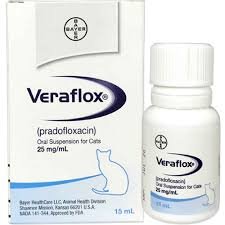I got Veraflox prescribed for our 18 year old for a UTI and it seems to be very powerful at killing bacteria. But there are strong warnings that it can cause neurological problems and blindness for the cat: Veraflox® Oral Suspension | For Veterinary Professionals
There's also a group of people who have suffered huge nervous and muscle issues from fluoroquinolone antibiotics and basically became almost paralyzed: Floxed by Cipro at 22: ‘A Bomb Went Off in My Body’
So I'm worried about using this antibiotic for our super senior cat (especially since she has a history of seizures and vets believed she had a stroke a few years back). Does anyone have any input? Have you dealt with this before? What do you recommend we do? Is there any way of telling how she might react to the fluoroquinolone before trying it? Thanks!
There's also a group of people who have suffered huge nervous and muscle issues from fluoroquinolone antibiotics and basically became almost paralyzed: Floxed by Cipro at 22: ‘A Bomb Went Off in My Body’
So I'm worried about using this antibiotic for our super senior cat (especially since she has a history of seizures and vets believed she had a stroke a few years back). Does anyone have any input? Have you dealt with this before? What do you recommend we do? Is there any way of telling how she might react to the fluoroquinolone before trying it? Thanks!
Attachments
-
7.5 KB Views: 103

